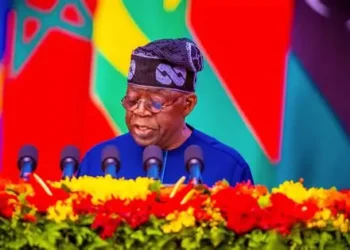Ms. Patricia Scotland, a distinguished global leader, is set to conclude her remarkable nine-year tenure as the first female Commonwealth Secretary-General on April 1, 2025. As she prepares to pass the baton to Ghana’s Shirley Botchwey, who will lead the 2.7 billion people of the Commonwealth, Scotland reflects on her tenure with a sense of fulfillment, seeing it as both an honor and a privilege. Now, she looks forward to some well-earned rest. She recently shared insights from her tenure on Channels Television’s Diplomatic Channel program.
A Look Back at Nine Transformative Years
Reflecting on your journey, what were your initial aspirations and concerns upon assuming office?
In 2015, many believed the Commonwealth was in need of significant change. I never accepted that perspective because the Commonwealth was already making an impact across diverse nations. Today, we have grown to 56 member states, representing 2.7 billion people—60% of whom are under the age of 30. This presented an incredible opportunity for economic and social expansion in line with the Commonwealth Charter.
I saw great potential in leveraging our shared language, legal systems, parliamentary structures, and institutions to enhance cooperation. A 2015 trade review highlighted a 19% trade advantage among Commonwealth nations, but it wasn’t being fully utilized. I envisioned transforming that advantage into a 30% improvement—making trade cheaper, easier, and faster.
We also prioritized governance, election integrity, youth engagement, and women’s empowerment. Recognizing that achieving prosperity required empowering women, we tackled gender equality and economic participation. Additionally, climate change emerged as a critical concern, particularly for the 25 small island developing states, many of which were on the frontline of environmental threats.
Addressing Climate Change and Sustainable Development Goals
Climate change has become a central global issue. What role has the Commonwealth played in addressing it?
The Commonwealth identified climate change as an existential threat as early as 1989, during a meeting in Langkawi, Malaysia. We warned that failure to act would lead to severe global consequences, many of which have since materialized.
Our commitment led to the creation of the Commonwealth Blue Charter, which focuses on ocean conservation, and the Climate Finance Access Hub, designed to assist vulnerable nations in securing necessary funding. Many developing countries contribute little to climate change yet bear the brunt of its impacts. Securing financial assistance for these nations has been a priority.
Through innovative initiatives, such as the use of geospatial data and AI, we have streamlined applications for climate financing. For example, Fiji recently secured $5.7 million for a nature-based seawall within 12 months—a process that traditionally took years. This model can now be replicated in other small island states.
Additionally, we introduced the Commonwealth Universal Vulnerability Index, advocating for financial aid allocation based on a country’s vulnerability rather than GDP alone. This is particularly crucial for nations like Dominica, which saw its GDP devastated twice within two years due to natural disasters.
Tackling Debt and Economic Stability
Developing nations face mounting debt challenges, particularly due to climate disasters. How has the Commonwealth addressed this issue?
Many countries accumulate debt while rebuilding after climate-induced destruction. Unfortunately, while hurricanes may wipe out infrastructure, they do not erase financial obligations. To support member states, we introduced Meridian, a debt management system overseeing both public and private debt. Today, it manages approximately $45 trillion in debt, offering strategies for economic resilience and recovery.
A Legacy of Service
Looking back, how do you feel about your tenure?
Serving one-third of the world’s population has been one of the greatest honors of my life. If my efforts have contributed, even in a small way, to improving the lives of the 2.7 billion people in the Commonwealth and assisting our 56 leaders in achieving their goals, then I am deeply satisfied.
The Future Beyond the Commonwealth
What are your plans after leaving office?
My immediate plan is to return to the House of Lords, but before that, I have a date with sleep. Over the past nine years, I worked nearly 20 hours a day, often foregoing my annual 30-day leave. The role demanded constant attention—crises do not pause for holidays. But now, I look forward to rest and reflection before stepping into the next chapter of my journey.
Source: Channels TV









